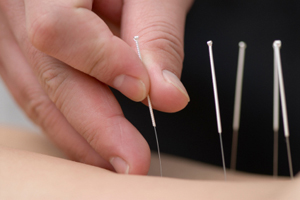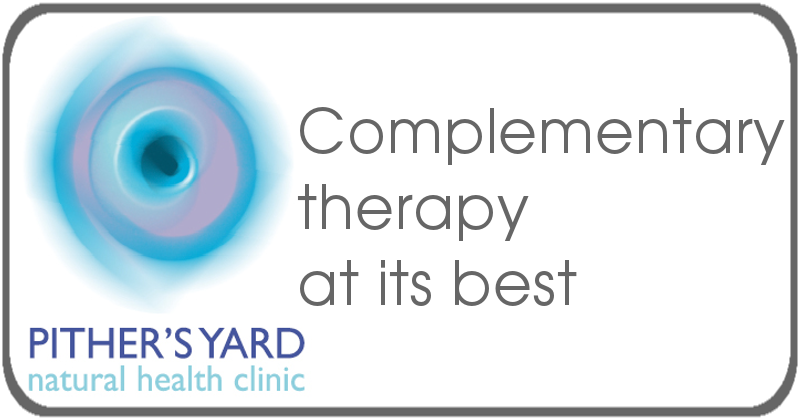Acupuncture
What is Acupuncture?
Acupuncture is a system of healing which has been practiced in China and other eastern countries for thousands of years. Although often described as a means of pain relief, it is in fact used to treat people with a wide range of illnesses. Its focus is on improving the overall well-being of the patient, rather than the isolated treatment of specific symptoms.
According to Traditional Chinese philosophy, our health is dependent on the body's motivating energy - known as Qi - moving in a smooth and balanced way through a series of channels beneath the skin. Qi consists of equal and opposite qualities -yin and yang-and when these become unbalanced, illness may result.
By inserting fine needles into these channels of energy, an acupuncturist can stimulate the body's own healing response and help to restore its natural balance. The flow of Qi can be disturbed by a number of factors. These include emotional states such as anxiety, stress, anger, fear or grief, poor nutrition, weather conditions, hereditary factors, infections, poisons and trauma.
(With thanks to the British Acupuncture Council).
Who has Acupuncture?
Many people have acupuncture for help with specific symptoms or conditions. These might include anxiety states, arthritis, asthma, back pain, circulatory problems, depression, facial paralysis, fibrositis, high blood pressure, indeterminate aches and pains, infertility, menstrual problems, migraines, rheumatism, sciatica, skin conditions or ulcers.
Acupuncture is a safe treatment for all. It has proved to be effective in pregnancy and birth management. It is also helpful for people trying to overcome addictions such as smoking, alcohol, food and drugs. Many people have acupuncture as a preventative measure to strengthen their constitution, or because they feel unwell in themselves without being 'ill' in the Western sense. It can also be used alongside conventional medicine in the treatment of both acute and chronic disease. Recently it has become a very popular treatment for facial rejuvenation (cosmetic acupuncture) as it offers good results without surgery.
What does it feel like?
Most people's experience of needles is of those used in injections and Blood tests. Acupuncture needles bear little resemblance to these. They are much finer and are solid rather than hollow. When the needle is inserted, the sensation is often described as a tingling or dull ache. Needles are left in for around 20 minutes depending on the effect required and the constitution of the patient. During treatments, patients commonly experience a heaviness in the limbs or a pleasant feeling of relaxation. The benefits of acupuncture frequently include more than just relief from a particular condition. Many people find that it also leads to increased energy levels, better appetite and sleep as well as an enhanced sense of well-being.
What will happen on my first visit?
A complete case history will be taken on the first visit in order to assess your general state of health, to identify the underlying pattern of disharmony and enable the practitioner to give you the most effective treatment. You will be asked about your current signs and symptoms and what treatment you have received so far, your medical history and that of your close family, your diet, digestive system, sleeping pattern and emotional state.
To discover how the energies in your body are flowing, your pulse will be felt on both wrists, noting their quality, rhythm and strength. The shape, colour and coating of your tongue also gives a good guide to your physical health. Once enough information has been gathered to determine the likely causes of your problems, an appropriate treatment can be selected. The aim is to discover which energy channels need adjusting for your specific complaint to improve, and which require treatment to boost your overall energy and vitality.
There are around 500 recognised acupuncture points on the body, of which about 100 are most commonly used. Stimulation of specific areas on the skin affects the functioning of certain organs in the body. However those areas may not be close to the part of the body where the problem is experienced. For example, although you may suffer from headaches, needles may be inserted in your feet or hands. Needle treatment may be supplemented with moxa, a smouldering herb which is used to warm acupuncture points to encourage the body's energy to flow smoothly. Massage may also be incorporated where necessary, particularly if the patient has a fear of needles or is extremely sensitive.
How often will I need treatment?
In traditional acupuncture philosophy, each person is considered unique, and therefore the number of treatments required depends on the individual. Some change is usually felt after five treatments. Normally you are recommended to come for treatment once or twice a week initially, although some conditions may need less frequent attention. Sometimes the effects of the treatment are dramatic and only one or two treatments are required. With other patients, the effects are more subtle and they may need treatment over several months.
Should my doctor know?
If you are receiving treatment from your doctor then it makes sense to tell them about your plans to have acupuncture. The treatment may enable you to reduce or even stop taking some forms of medication, but your doctor should be consulted regarding any change of prescription. You should always tell your acupuncturist about any medication you are taking as this may affect your response to the acupuncture treatment.
Is it Safe?
All members of the British Acupuncture Council must observe a Code of Practice which lays down stringent standards of hygiene. These procedures have been approved by the Dept. of Health and provide protection against the transmission of infectious diseases. To guard against the transmission of disease, sterile disposable needles are used.
Therapist:

